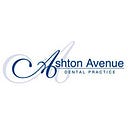Top 10 Advantages of Sedation Dentistry
You might have heard about this revolutionary change in dentistry which helps you feel no pain! Sleep dentistry is the cutting-edge technology that we are talking about today. It is too common these days to be missed. But despite this popularity and widespread use, some of us still need to know more about sleep dentistry.
If you are a tad reluctant about taking help from sleep dentistry, you need to read this. This blog was written with the sole purpose of helping you benefit from sleep dentistry.

What is sleep dentistry?
Sleep dentistry is the practice of using sedatives to make patients relax while the dentist is performing a dental procedure. Because of the use of sedatives, this method is also known as sedation dentistry. Patients can be sedated for dental surgery or a diagnosis depending upon their comfort levels. The choice of sedatives is also made following the medical history and the duration of the dental procedure.
Sleep dentistry is all about letting your dental anxieties aside to get your dental issues solved.
There can be various reasons as to why patients feel uncomfortable to go to a dentist. Sleep dentistry can help patients overcome their hurdles and visit a dentist to maintain good oral hygiene. Patients who are afraid to go to the dentist simply because of dental phobia or past bad experiences can greatly benefit from sleep dentistry. Sedatives make a dental procedure virtually painless.
Let us now have a look at the top advantages of sleep dentistry and how you can benefit from them.
1. Helps You Relax
The use of sedatives helps achieve a tranquil state where you as a patient can relax. Of course, the sedatives used for sleep dentistry do not make you unaware of the surroundings. Except for general anaesthesia in more complicated and lengthy procedures, you are quite awake and know all that is happening around you. But you feel no pain and that way, you can relax on the dentist’s chair.
2. You Feel No Discomfort
The sedatives make a dental procedure virtually painless. Patients under the effect of sedatives feel less fatigue after the completion of dental surgery. If you suffer from jaw soreness or temporomandibular joint dysfunction (TMJ), sleep dentistry can help you feel no discomfort.
3. Can Solve Dental Anxiety
Majority of patients who avoid visiting a dentist are suffering from dental anxiety. Whatever be the root cause making them fear the dentist, sleep dentistry can make them feel quite comfortable. With the absence of pain and discomfort, people with dental anxiety can be made to go for a dental procedure when needed. Also, the approach of a dentist can make a big difference. Dentists explaining their procedures thoroughly to the patients and maintaining good communication can help patients benefit from sleep dentistry.
4. Helps Manage Gag Reflex
The gag reflex is a major concern for many amongst us. During a dental surgery, the dental instrument can touch the triggers evoking this condition. And the fear of this situation also stops patients from visiting a dentist. Sleep dentistry can again be helpful here and reduce the effect of this condition.
5. Controls Movements
It can be difficult to make children and special needs patients sit for longer durations of time without any movements. Patients suffering from involuntary movements disorder can also find it difficult to stop moving while in the dentist’s chair. This problem can be solved by sleep dentistry, where patients can relax and stop moving for as long as the dentist operates on their teeth.
6. Saves Time and Appointments
Without the time required for patients to adjust before and during a dental procedure, the total duration of treatment can be decreased. Patients can withstand keeping their jaw opened for a longer duration without any exhaustion, allowing the dentist to perform many tasks in one go. Ultimately treatments that took several appointments can be done in less time.
7. Easy for The Dentist
When the patient is relaxed and there is enough time to perform the dental procedure, a dentist is free to focus more on the procedure. More focus and comfort on the dentist’s part ensure a better quality of the dental procedure performed. For example, inserting dental implants is a quick but tricky job requiring expertise and proper attention. If a patient is under the influence of sedatives, a dentist can perform his task well reducing the risk of implant failure.
8. Benefits People with Low Pain Threshold
Apart from dental anxiety, people with low pain threshold also avoid visiting a dentist. If we can remove the feeling of pain from a dental procedure, those people can surely benefit from dental treatments. Hence, sleep dentistry helps patients with low pain threshold withstand dental surgery.
9. Can Be Used for Multiple Surgeries
Sleep dentistry is extremely useful in cases where a patient needs multiple operations to be performed simultaneously. For example, a patient has unfortunately met an accident and injured several teeth at once. Sleep dentistry allows dentists to perform multiple dental surgeries at once that requires more time than normal.
10. Can Be Customised Depending on Dental Procedure
Not every dental procedure requires anaesthesia. If it is a quick one, only a lighter sedative such as nitrous oxide can work. Sleep dentistry offers a choice of sedatives to choose from. Your dentist can decide this based on the kind of dental procedure you require and your medical history.
These were some extraordinary benefits of sleep dentistry. Ask your dentist if you are a candidate for sleep dentistry. As there are a few general health conditions you need to fulfil for sleep dentistry, make sure you discuss your medical history with your dentist before proceeding with sleep dentistry.
